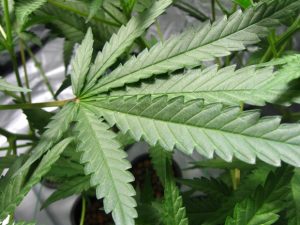Since the passage of Amendment 2 in 2016, Florida lawmakers have been trying to weed through the state’s already-complex marijuana statutes to hammer out new rules for growing, processing, distributing and possessing/ using the plant. Some individual cities have adopted their own ordinances with regard to recreational marijuana, which has led to many people being confused about what’s legal and what isn’t in Florida.
What we can say for certain is that Amendment 2 did NOT:
- Alter Florida’s drug possession laws;
- Change the fact that you can be arrested for driving under the influence of marijuana – medical or not;
- Grant permission for the public consumption/ smoking of the drug;
- Have any impact on federal law, which expressly prohibits marijuana possession and distribution, regardless of purpose.
Although some cities have decriminalized possession of small amounts of the drug, this only allows police to issue a citation rather than arrest – and it’s still subject to officer discretion. Plus, if you have anything more than 20 grams, that’s typically enough to qualify you for criminal charges in those municipalities.
Specifically with regard to marijuana DUI, Fort Lauderdale DUI defense lawyers understand there has been some consternation among lawmakers regarding the expenditure of $5 million public awareness campaign intended to drive down marijuana-related crashes. The campaign, called “Drive Baked, Get Busted,” was reportedly intended to give warning to drivers in Florida about how dangerous – and illegal – it is to drive while high. Patient rights groups are critical of the campaign, describing it as “high drama, low information.” Others say it’s a missed opportunity to educate on compliance with medical marijuana laws – the original plan – because those behind it instead targeted younger recreational users, who by-and-large consider it a joke and aren’t educated by it.
Just in six months, an estimated $3.2 million of the allocated funds have been spent on ads published on radio, television, posters, billboards and newspapers. Recently, the campaign was suspended and slated for evaluation. Part of the controversy is over the fact that this money was spent despite the fact that the state maintains no data of how big of a problem this actually is – or is not.
The Tampa Bay Times, culling state and national data, reported that in 2016, there were 671 people who died in crashes with impaired drivers. Roughly 42 percent of them were involved in crashes with drivers who were solely impaired by alcohol. Those killed by drivers impaired solely by drugs accounted for 31 percent. However, we don’t know what kind of drugs were involved in those cases because the state doesn’t track that. Those who died in crashes wherein a driver was allegedly under the influence of both alcohol and drugs accounted for 27 percent of fatalities.
F.S. 316.193, Florida’s driving under the influence statute, doesn’t expressly cite marijuana impairment nor does it establish a per se limit of the active ingredient THC in the blood or urine the way it does alcohol. However, it does indicate one who is “under the influence” of either alcohol or “any chemical substance… to the extent that his/her normal faculties are impaired.” Marijuana is certainly included in that, but determining whether someone is “under the influence” is something that is often up for interpretation – and controversy in the courtroom.
Although many patrol officers believe they can “easily” detect it, the reality is there is no roadside test or technology that can unequivocally prove a driver impaired by marijuana. Officers say they look for things like difficulty multi-tasking, slurred speech, sluggish reactions, watery or bloodshot eyes, inability to cross eyes, driving too fast or too slow or weaving in and out of lanes. Many are the same indicators they cite for alcohol impairment. Some also say the smell of burnt marijuana is a strong indicator. Blood or urine tests indicating the presence of THC can typically be effectively challenged by your criminal defense attorney in court, but we’ll still have to establish enough reasonable doubt about the other circumstantial factors.
Call Fort Lauderdale Criminal Defense Attorney Richard Ansara at (954) 761-4011. Serving Broward, Miami-Dade and Palm Beach counties.
Additional Resources:
Is Florida’s effort to stop marijuana-impaired drivers half-baked? July 2, 2018, By Justin Trombly, Tampa Bay Times
More Blog Entries:
Can I See What’s In Your Trunk?: Consent Searches in Miami-Dade County, July 5, 2018, Fort Lauderdale DUI Defense Attorney Blog
 Fort Lauderdale Criminal Attorney Blog
Fort Lauderdale Criminal Attorney Blog


